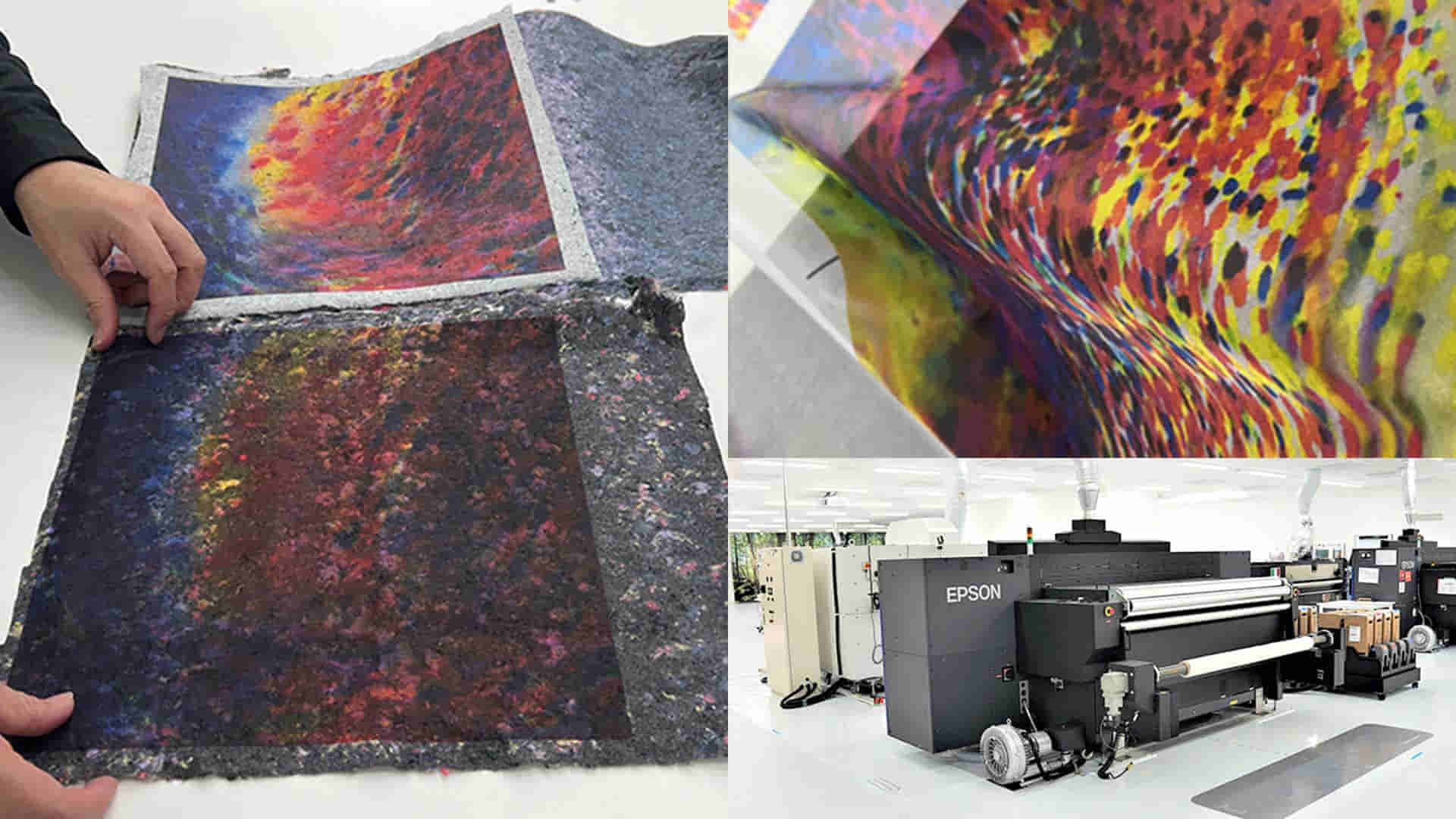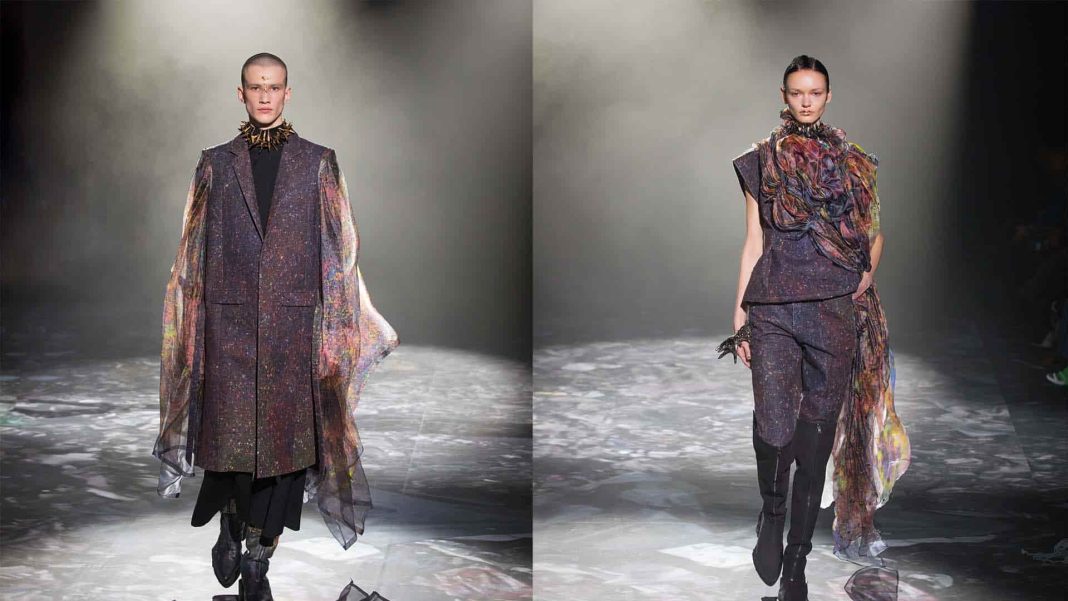A global technology provider Epson has partnered with renowned Japanese fashion designer Yuima Nakazato and his eponymous Yuima Nakazato brand at Paris Haute Couture Fashion Week Spring – Summer 2023 to unveil creations that are both stunning and sustainable. The fabric taken to create the latest Yuima Nakazato fashion line was derived from material from used garments sourced from Africa, the destination for many discarded garments from elsewhere in the world. Nakazato visited Kenya where he collected around 150 kg of waste garment material destined for the ‘clothes mountain’ of discarded textiles he encountered there. Epson then applied its dry fiber process to produce over 50 metres of new re-fiberised nonwoven fabric, some of which was used for printing with pigment inks with Epson’s Monna Lisa digital printing technology. In addition to utilizing Epson’s digital textile printing to reproduce his unique and creative worldview, Nakazato realized some of his creations with the help of a new and more sustainable textile production process.
The company’s dry fiber technology, which is already used commercially to recycle office paper and which requires virtually no water, has been adapted to produce printable non-woven fabric from used garments. The new fabric production process was revealed in Paris as part of a three-year collaboration between Epson and YUIMA NAKAZATO and was used in the creation of items for the first time during the latter’s runway show at the Palais de Tokyo on January 25, 2023.

Epson’s dry fiber technology contributes to a much more sustainable fashion
Hitoshi Igarashi from Epson’s Printing Solutions Division mentioned the importance of the technology, saying: “Although in its early stages, Epson believes its dry fiber technology combined with pigment ink digital printing could offer the fashion industry a much more sustainable future, significantly reducing water use while allowing designers the freedom to fully express their creativity.”
Emphasising that the company’s Environmental Vision is committed to contributing to a circular economy, Igarashi stated that this development could be one step towards achieving this. Igarashi disclosed that dry fiber technology applied to the fashion industry offers the possibility of producing material for new clothes that have been recycled from used garments.
In a trial of distributed printing for venue decoration, Epson inkjet printers in Japan and France with remote support from Epson engineers were used to create decorations in the venue space. Both Epson and YUIMA NAKAZATO stated that they intend to continue exploring the possibilities for contributing to a more sustainable fashion industry.
